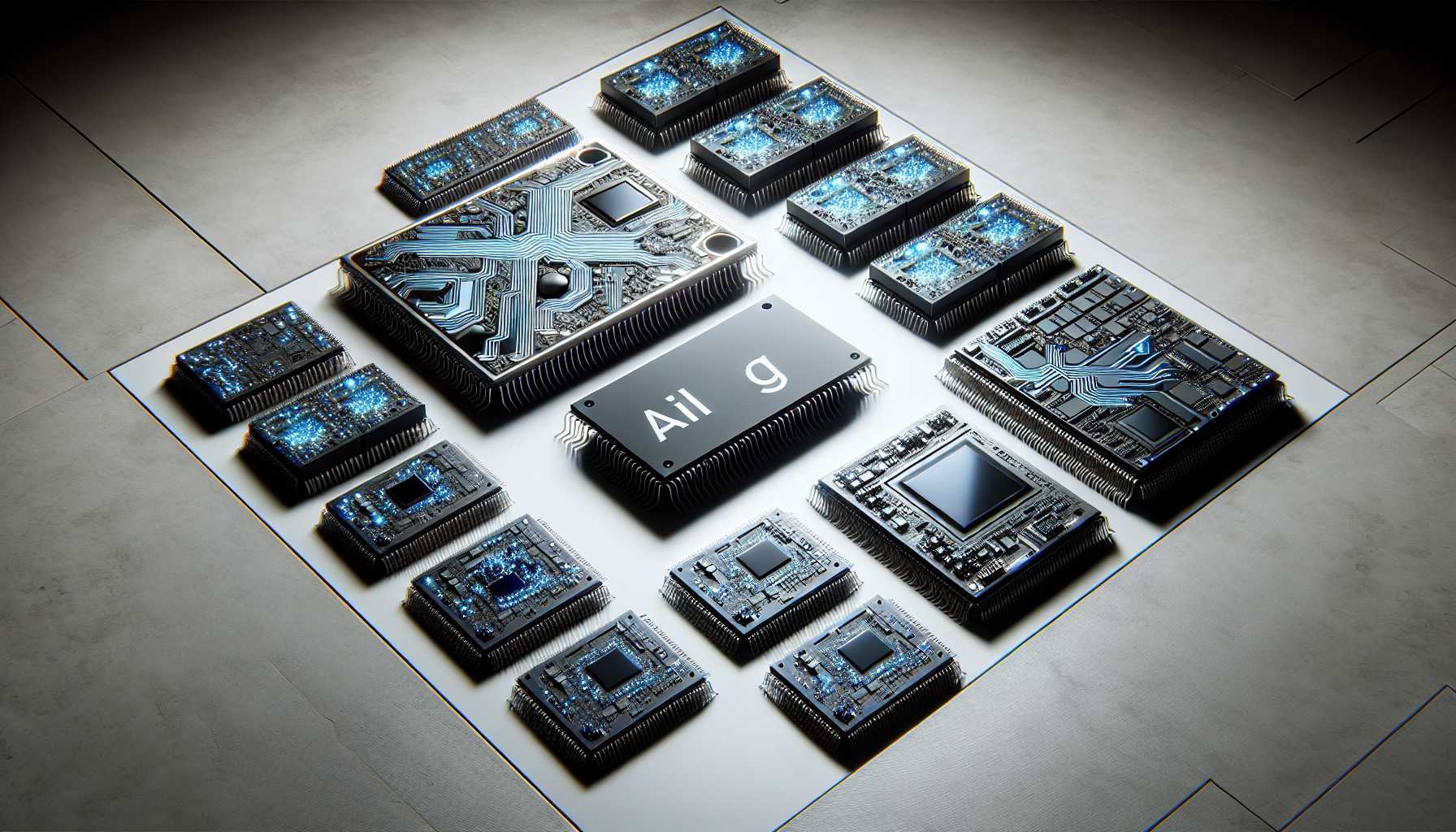The Dawning Age of Enterprise AI
As someone with an unquenchable thirst for tech news and a penchant for demystifying buzzwords, I couldn’t be more excited about the shifts happening up in the cloud. Google Cloud Next 2024 was not just another event in the enterprise tech calendar; it was a pivotal moment signaling that we’re truly entering the “age of AI.”
With Google’s recent unveiling of cutting-edge AI developments, the tech titan is turbocharging its cloud services to outshine the stars. Imagine AI that doesn’t just work for you but with you, seamlessly integrating into cloud applications, scaffolding the construction of conversational bots like Gemini, and adding a new sheen to Google Workspace. As a techie, I have to say, the potential here is mind-blowing. It’s like watching a child prodigy grow up to solve quantum equations – the evolution of cloud services is reaching a maturity where it’s not just about storage or computing power; it’s about intelligent, anticipatory, and adaptive capabilities.
BlackBerry and AMD: An Industrial and Healthcare Robotics Powerhouse
Now, slap on your tech spectacles and gaze at BlackBerry’s resurgence. Once the beloved brainchild of enterprise mobility, it’s teamed up with Advanced Micro Devices (AMD) to roll out a platform that could redefine robotics in industrial and healthcare sectors. Using BlackBerry’s QNX platform, these two tech stalwarts aim to shatter the shackles limiting robotics technology. As a techie and an investor, I’m clinching my fists in anticipation because this synergy could be the golden ticket to growth BlackBerry has longed for. If these two can pull a rabbit out of the hat, we’re looking at a new chapter for robotics capabilities, ripe for investors to dive in.
Alphabet’s Custom AI Chip Bonanza and Market Movements
While BlackBerry plots a robotics revolution, Alphabet is not resting on its laurels. Throwing its hat into the custom AI chip ring, Alphabet is leveraging Arm Holdings’ architecture to produce something they’ve christened “the Google Axion.” Think of it as the infernal offspring of speed and intelligence, designed exclusively for data centers that pump life into the services we devour daily. This move isn’t merely about keeping up with the Joneses. With Silicon Valley’s new tech group, the Unified Acceleration Foundation, Alphabet is signaling a no-holds-barred rumble against Nvidia’s AI dominance, teaming up with industry heavyweights like Qualcomm and Intel. For investors, Alphabet’s market performance and ventures like the Axion mark it as a critical stock to watch. And let’s be honest, who doesn’t love a good David versus Goliath story, especially when it’s playing out in the tech stock market?
The Rise of the AI Programming Overlords
Let’s talk about shaping the future programming maestros – just not the human kind. The Ultimate AI, ChatGPT, and Python Programming Bundle is a shining example of AI stepping into the teaching fray. We’re witnessing ChatGPT, an AI that’s a few baby steps away from becoming the coding mentor we all need, albeit still needing a human touch for refinement in coding instruction. For tech enthusiasts keen on programming, this is like watching a sci-fi dream morph into pixels right before our eyes. This conversational model buttressed by Python is poised not just to enhance our code but to redefine how learning and programming intersect. Who needs a sprawling campus when the paragon of AI coding instruction fits snugly within a bundle of courses?
Intel’s Open AI Ecosystem Ambitions and Security Workforce Advances
Ah, Intel, the tech behemoth that redefined processing, is eyeing an open AI ecosystem with tantalizing chips like the Gaudi 3 AI accelerator on the horizon. This chip is no slouch; it’s all set to bring 50% better inference processing and 40% better power efficiency than Nvidia’s offerings. If you’re in the tech game for enterprise AI deployment, Intel’s Gaudi 3 could be your new best friend. The company’s drive for an open alternative in AI processing is an Investor’s delight, signaling diversity and competition in a sector monopolized by a select few. In a parallel but equally exciting narrative, Intel is beefing up the security workforce landscape with AI-powered capabilities. This proactive approach promises to transform mundane security protocols into intelligent, generative AI systems that react with the precision of a hawk sighting its prey.
The leaps being made with AI, from Google’s annual feat to BlackBerry’s robotics aspirations, Alphabet’s chip insurgency, AI’s rise as a programming unifier, and Intel’s open ecosystem dreams, are not just news but a clarion call for technologists and investors alike. With every byte and transistor at play, this news is a testament that being tech-savvy is now a non-negotiable trait to succeed in a world redefined by algorithms.





